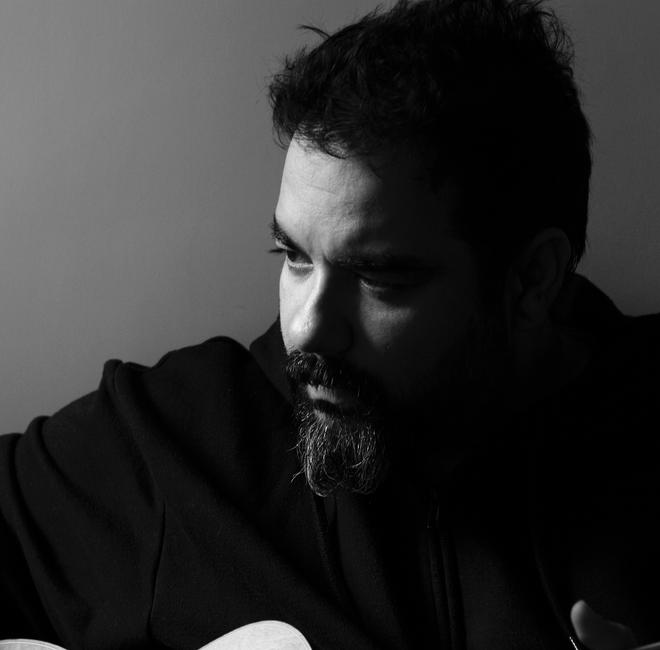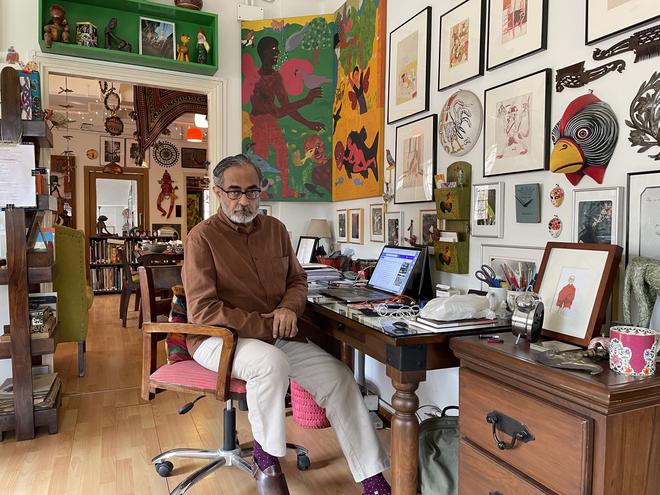Forty years ago, when Naveen Kishore began Seagull Books in Kolkata, he might not have imagined how many people his niche venture would touch, across countries. The independent publishing house specialises in books on art, theatre and cinema, is known for its translations, and also owns worldwide English-language publishing rights for authors (several of them Nobel laureates) as renowned as Peter Handke, Mo Yan and László Krasznahorkai. And, it has a backlist of over 500 titles.
To commemorate its four decades, director Pushan Kripalani — known for films such as Goldfish (2022) starring Kalki Koechlin and Deepti Naval — has come up with Of the Book and Other Stories, a 151-minute documentary on the publication house and the man behind it. The inaugural screening was in Bangalore on July 7.

The film is a coming together of conversations about Seagull and Kishore, by authors such as Romila Thapar and others in publishing. “The length was determined by the quality of the conversations. We went in with an open mind,” explains the filmmaker.
Edited excerpts from an interview with Kripalani.
Everyone has a Seagull story, and every person has a different memory. How did you come up with the narrative for Of the Book and Other Stories?
I’ve literally known Naveen all my life. For me, Seagull is not separate from the person. I wanted the film to have the intimacy of that conversation, but I also wanted to approach it like a student. I wanted to learn how the organisation has maintained its integrity and independence over time.
All good documentaries are invested in the subject, but they also have the most subservient view of what they are going to embark on. I was interested in the why and how of Seagull, because everyone knows the what. I wanted to know how a person sitting in Kolkata can run something as precarious as independent publishing and overcome the mad vagaries of the marketplace.

For instance, I learnt that when the late Nemai Ghosh — who worked with filmmaker Satyajit Ray as a still photographer for over 20 years — approached Naveen for a book of photographs, he commissioned it though it meant giving up on other print-rich titles. Naveen did not want someone of that stature to go around hawking his life. The book was Dramatic Moments, and that to me is the gold standard of what being a human being is. Which is why at the centre of the film is Naveen’s humanist view of the world, with a completely different definition of success.
The film is a series of separate conversations, but it feels like a seamless whole...
I’m glad you felt that. We made the film in a particular way. When you cut a documentary, you move from point to point in search of a certain kind of pace. But real conversations happen at a different pace; they allow an idea to emerge.
I spoke to each of them [featured in the film] for over an hour. The conversations decided the time. For instance, author Gayatri Chakravorty Spivak gave me 15 minutes, but we spoke for 90. Gayatri, who follows a certain Leftist philosophy, had shared that when it came to the quality of the book cover she was hopelessly bourgeois. How do you stop a conversation like that in 15 minutes?
I learnt so much about Naveen, too. I knew he played cards, but not that he did so because family circumstances had forced him put food on the table when he was 16. His father was in and out of jobs, and Naveen played cards and did lighting work and brought home ₹800 a month.
“After the recent Bengaluru screening, a teacher shared that what resonated with her was how, while many of us don’t do certain things out of fear of failure, we took the risk and failed very often. I tried to explain to her that after having had to put food on the table when young, now when something does not work out, it is not some despairing failure. I just find solutions and figure out logistics to do it differently. The film, I think, teaches you to persist.”Naveen KishorePublisher, Seagull Books
You say you know Naveen very well. How did you maintain that distance when shooting?
Knowing someone when you are practising your craft does not preclude you from practising it. I did not just aim for an outsiders’ perspective, but also a critical one. You can have objectivity even while being affectionate.
The consultant writer from Mangaluru has been covering the entertainment beat for two decades.







